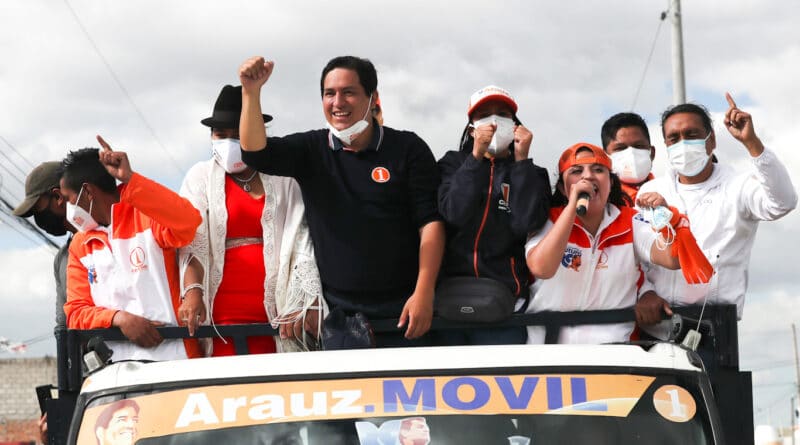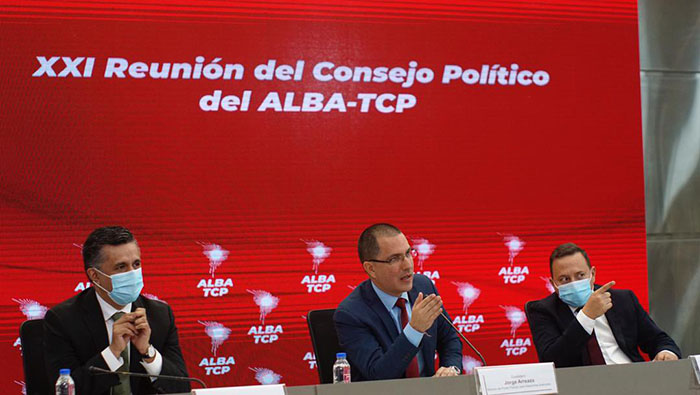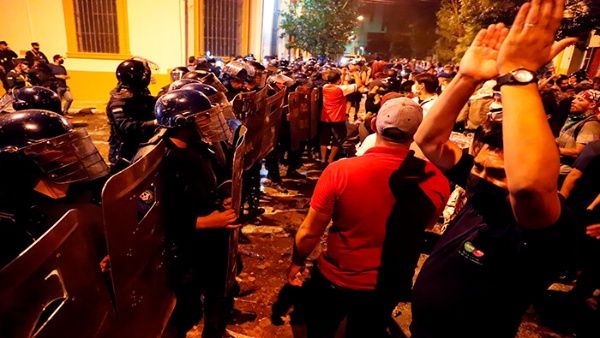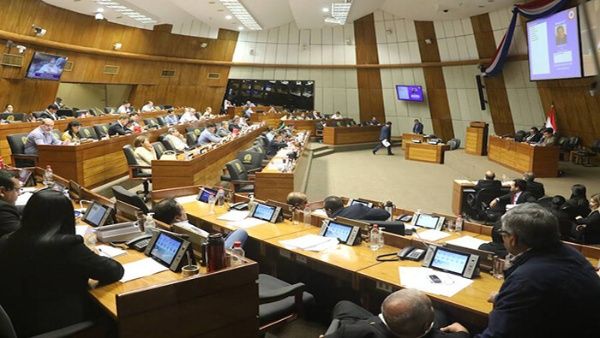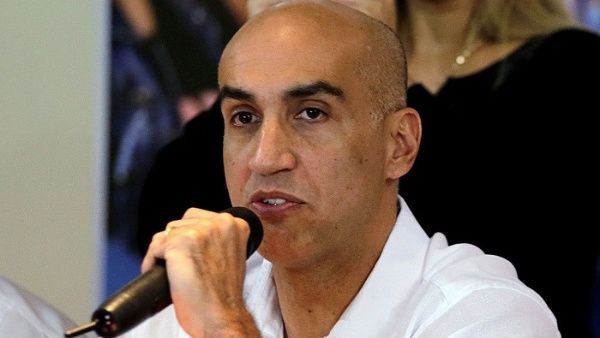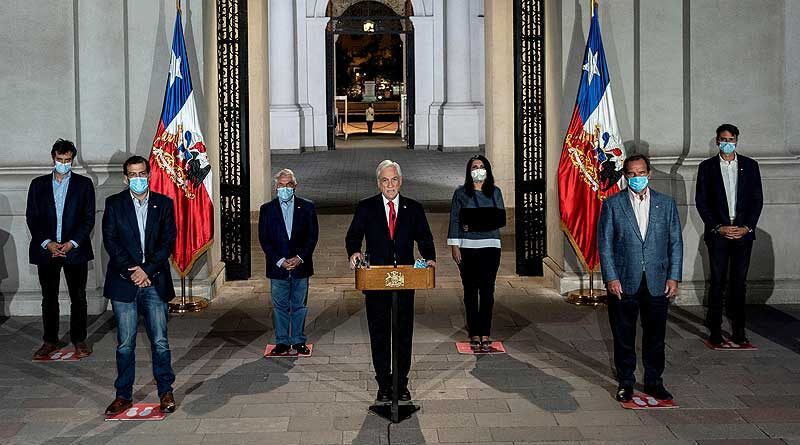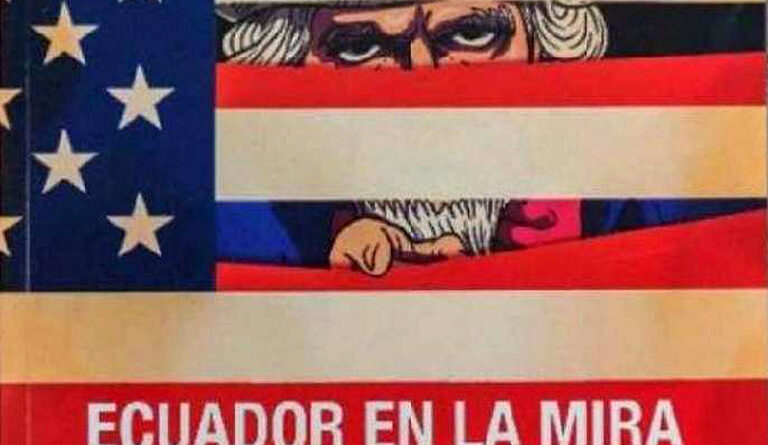Ecuador: The CIA in Disarray
Posted by INTERNATIONALIST 360° on MARCH 9, 2021
Revista Crisis
 After dismantling the State, after generating the most brutal crisis in the history of the country, after taking so many lives and futures, the CIA rats are on the move.
After dismantling the State, after generating the most brutal crisis in the history of the country, after taking so many lives and futures, the CIA rats are on the move.
On Friday afternoon, March 5, 2021, Patricio Pazmiño, General of the National Police on passive duty, resigned from the Ministry of Government. Pazmiño replaced deputy minister María Paula Romo, who was removed from the position last November 24. Pazmiño had been in office for only three months. As vice minister, Pazmiño was in charge of the logistical coordination of the unbridled repression of October 2019, events that for their brutality represent State crimes and crimes against humanity.
Ten days after the prison crisis, which led to the murder of 79 PPL prisoners, the highest authority in charge of the internal security of the bourgeois state, presented his resignation to President Lenin Moreno. The worst government in the history of Ecuador, apart from the relentless and aggressive application of anti-popular and neoliberal measures, has stood out for having unscrupulous authorities.
The resignations of high-ranking State officials are happening as apparently independent events, but they are not. It is evident that the Moreno government’s hours are numbered, and a massive flight of its authorities will not wait. The bourgeoisie destroys, deinstitutionalizes and takes advantage of the State. The multiple outrages to the life and dignity of the people, fall into possible criminal responsibilities, and those responsible vanish. After the raffle of privatizations of the public sector, the structural defunding of the State’s portfolios and the speculation with life in the midst of the pandemic, there will be no one left to hold responsible for so much pain.
Nor is it a coincidence that the preferred destination for the Moreno government authorities is the U.S. From the beginning, the National Government has proven to be faithful and servile to the interests of the U.S. State Department. Among the achievements of the government in favor of U.S. national interests are the signing of an FTA between the two countries, the unconditional support for its imperial policy, with the recognition of the self-claimed Juan Guaidó in Venezuela and the dictator Jeanine Áñez in Bolivia, in addition to the reinstatement of military cooperation in geopolitical terms, with the “natural base” of Galapagos. The United States knows how to take care of its “friends”, as former President Trump affectionately expressed to Álvaro Uribe last October.
The neoliberal government par excellence continues to sink, without characters like Pazmiño and Zevallos losing the opportunity to wash their hands and consciences, fleeing at the most opportune moment. The people will not forget those who have been their executioners in these four years of implementation of the machinery of death called neoliberalism. Hopefully someday, these nefarious figures will be brought to justice before they return to take refuge in their favorite homeland, the United States. The rats continue to abandon ship, one after another. The question remains as to whether the captain of the shipwreck, Lenin Moreno, will end up sinking with the ship, or whether he will also receive a life preserver from the U.S. State Department.
Chronicle of the escape
The CIA is in retreat. The agents who have imposed neoliberalism from shock to shock in the country, are on their way out. The first to leave office was the former Minister of Economic and Social Inclusion, Ivan Granda, who resigned on September 4. The next to leave the country for the United States was former Minister of Finance Richard Martinez, who was promoted to the position of Vice-President for countries at the IDB on November 13, 2020.
They were followed by the Minister of Terror, María Paula Romo. After being removed from office on November 24, 2020, in the impeachment trial carried out by the National Assembly, she vanished from the public sphere. No one knows the whereabouts of the former minister, one of the most relevant figures in the dismantling of the State, and best friend of the U.S. Embassy, along with her was her recent husband, Iván Granda.
Subsequently, the former Secretary General of the Cabinet of the Presidency of the Republic, the senior lackey, Juan Sebastián Roldán, caught up with them on the run, last February 19, 2021. His main function in the ill-fated government of Moreno, was highlighted by the rapprochement with the US State Department, the FTA agreement, the defense of the repression of October 2019, the budget cuts and the servility to the IMF and WB. With the impudence of a “dios le pague”, Roldan declared his mission accomplished, the embezzlement of the country, and left not to return.
Only a week later, in the midst of the world’s biggest corruption scandal in the handling of the vaccines against covid-19, the former Minister of Health, Juan Carlos Zevallos, resigned. That same night, he fled the country for Miami. Leaving the country with the worst SARS-COV2 death figures, a collapsed health system, and the people in total abandonment. He, his mother, relatives and friends of the worst government in history were vaccinated.
Now the brand new Minister of Government and right hand of María Paula Romo, Patricio Pazmiño, joins the escape. Who will follow him in the escape caravan? Perhaps Mr. President, who has already alleged heart problems. Or it will be Jarrín and Michelena. Maybe it will be Pablo Celi, now that the prosecutor’s office is investigating him. It is not certain, what we do know is that after dismantling the State, after generating the most brutal crisis in the history of the country, after taking so many lives and futures, the CIA rats are on the move.
Translation by Internationalist 360°
https://libya360.wordpress.com/2021/03/ ... -disarray/
**********************************************************
Ecuadorian Indigenous Leader: “We Must Get Out of the Correaism-Anticorreism Polarization”
Posted by INTERNATIONALIST 360° on MARCH 10, 2021
Marco Teruggi
 Leonidas Iza, leader of the Indigenous Peasant Movement of Cotopaxi © Sputnik / Marco Teruggi
Leonidas Iza, leader of the Indigenous Peasant Movement of Cotopaxi © Sputnik / Marco Teruggi
Ecuador’s main indigenous movement is in the midst of debates and tensions over the presidential candidacy of Yaku Perez, the logic of decision-making, and alliances for the second round of elections. Leonidas Iza, one of its main leaders, talked to Sputnik about the current situation.
Leonidas Iza Salazar is one of the main leaders of the indigenous movement in Ecuador. His name gained national prominence in the October 2019 uprising against the attempted economic adjustment sought by the government of Lenin Moreno. Iza was at the head of the Indigenous and Peasant Movement of Cotopaxi (MICC) that mobilized nearly 60,000 people to Quito during those days in October.
Since then he is the subject of eight judicial proceedings. He is not the only one: Jaime Vargas, president of the Confederation of Indigenous Nationalities of Ecuador (CONAIE), of which the MICC is part, has seven processes, and “many comrades in the provinces have precautionary measures, they cannot leave the country, they have to sign-in every week,” explained Iza from San Ignacio, the community where he was born, in the province of Cotopaxi, two hours from the capital.
Iza is once again at the center of the current debates in Conaie, one of the four indigenous organizations in the country, “the most structured”, he says, which comprises 18 peoples, 15 nationalities, with a presence in the three regions of the country: the highlands, the Amazon and the coast. The debate that the movement is going through has repercussions on national politics because it has at its center the question of the presidential elections, in which Yaku Perez was a candidate for the Pachakutik party, the electoral instrument of the Conaie.
Discussions about Perez’s denunciation of fraud in the February 7 elections, as well as what position Conaie will take before the second round, hide deeper tensions, “a very difficult moment”, explains Iza. The internal differences include Pérez’s candidacy, the relationship between Conaie and Pachakutik, decision-making, alliances, and the existence of a sector of the movement with links to the right.
Conaie-Pachakutik
The Pachakutik political party was created in 1995 “by collective decision”, says Iza. Five years earlier there had been the first indigenous uprising led by Conaie. The original agreement was that “those who decide on the life of Pachakutik are the organizational structures of peoples and nationalities at the Conaie level”.
However, this relationship and form of internal decision making began to enter into “dispute”, says the MICC leader, with what he calls an attempt to “autonomize itself on the part of the Pachakutik movement, not wanting to depend on the decisions of the organizational structures”.
The debate is currently divided into two positions. One sector, which includes Iza, maintains that Pachakutik should “sustain itself with the organizational structures”. This is a vision that is raised not only in view of a specific decision, but also towards the exercise of government at any level, national or local, to which a candidate of the party may accede: there, too, one must govern and administer “with the structures of the movement and the structures of self-organization of the citizens, because this is not only about the indigenous movement”.
On the other hand, “the regulations of the code of democracy and the organic structure of Pachakutik say that those who decide are the individual adherents”, explains Iza. According to the MICC leader, this not only implies the danger that “Pachakutik as an instrument will be superimposed over the process of struggle that Conaie has had”, but also that it will lead to individualization in participation, when what is historically defended is “a collective form of participation”.
The nomination of Yaku Pérez
“It has been a very complex year”, says Iza, and the candidacy of Perez as head of Pachakutik for the presidency is an expression of that situation. Originally there were four possible candidates for the presidential election: Jaime Vargas, Perez, Salvador Quishpe, who was elected to the National Assembly (NA), and Iza himself.
The election of the candidate was to be, in the first place, by consensus, “as has been the strategy of the indigenous movement all its life”. In order to reach this consensus, three elements were to be undertaken: “a general evaluation of the polls, to determine the strength of each comrade, an evaluation of the decision of the organizational structures of peoples and nationalities, and a survey of their own”.
In the event that this procedure did not take place, then “the other regulations on the processes of internal democracy should be respected, go to primaries, let the peoples and nationalities vote, let the adherents vote, and whoever is elected, then we all align ourselves with the winner”.
Neither of the two procedures happened for the election of Perez. His designation “was a decision solely and exclusively of the coordinators of the provinces and at the national level of the national executive committee of Pachakutik without taking into account the decision of the organizations,” he explains. And that “provoked a fissure”.
There were attempts to unify again, “because we could not face polarized elections”. However, a synthesis was not achieved, Perez remained as candidate and “generated the distancing of comrade Jaime Vargas, from the organizations”.
Neither left nor right
When on February 12, seven days after the elections, Perez and Guillermo Lasso met at the National Electoral Council (CNE) to address the complaint of fraud filed by Perez, Iza wrote on his Twitter account:
We are vigilant that the meeting between @yakuperezg and @LassoGuillermo is not an agreement with the right.
This would be illegitimate and unconsulted with the grassroots of @CONAIE_Ecuador and Pachakutik. Our fight is against the neoliberal right wing that plundered the country, wherever it comes from.
– Leonidas Iza Salazar Official (@LeonidasIzaSal1) February 12, 2021
Iza’s public warning in the meeting between Perez and the neoliberal candidate Lasso, who will be in the second round against Andres Arauz, candidate of the Citizen Revolution, was due to the fact that there is “a sector within the indigenous movement that says we are neither left nor right, but at the time of the elections they prefer to go with candidates of the right”.
This happened, for example, in 2017, when faced with the ballot between Moreno and Lasso, Perez called to support the second. Iza points out that even “there is a sector that is around Perez that has stood twice for Lasso’s party, so logically now they are very close and are not going to carry the agenda of the peoples and nationalities”.
This rapprochement of the movement to a sector of the right is part of the current debates. Iza defends Conaie’s leftist position: “We take that position based on reality, most of our families live in poverty and extreme poverty, and that logically leads to a political project, and the intention is to transform that reality”.
However, politics in Ecuador is marked by a political watershed, which is Correaism and anti-Correaism. This cleavage works as a device to gather heterogeneous alliances against Correaism, namely the Citizen Revolution, under which the Conaie sectors that seek alliances to the right are sheltered. However, this is not the only problem:
“Ecuador is saturated with this idea of correísmo and anticorreísmo, an unnecessary polarization of politics. There is a sector of the right wing that confronts Correaism with all its strength, but our colleagues also confront it because we have been beaten by Correaism”.
Iza refers to several issues they “dealt with” with the governments of Rafael Correa (2007-2017). One of them was “water administration”, where “there we broke relations, we proposed that the community boards be recognized as subjects of production, that the community territories not be divided”.
Another issue was that of indigenous justice: “We had said that it is a right that must be guaranteed between ordinary justice and indigenous justice, a level of coordination, and the criminalization on the part of the justice authorities cannot be allowed”.
Another central issue was the question of territory and mining: “At this moment Ecuador has 15% of the national territory under concession for mining, and 70% of that percentage is in indigenous territories. The nerve center point with all the governments in office is the extractive issue”.
The MICC leader names several other elements, such as the “disrespect to the structures” of the movement, having been accused of being part of the enemy, or criticism of the policies of Correa’s government, in the economic field. “For example, the marketing system, if there is a policy that favors the large chains, why not generate marketing conditions for the same productive units of the peasants, so that they can enter into a redistribution of the economy from the market?”.
Iza acknowledges positive aspects, such as the social assistance policy or the improvement of roads, although in each case with a critical view. To this can be added central issues of agreement, such as the plurinational and intercultural character approved in the 2008 Constitution, or international policies such as the withdrawal of the U.S. military base in Manta, in 2009.
“With all that is there we say we have to continue fighting, but we have to get out of the polarization of correism-anti-correism. In that scenario the only ones who benefit are the right-wing groups”.
The second round
“I as a leader do not answer only for my ideas, which have been questioned or debated even with our own comrades who say we are neither left nor right wing and the elections come and they go with the right, and that will never be with me and we are not going to do it”, Iza begins by answering to a question about the second round.
His response comes before Conaie’s Enlarged Council meeting Wednesday, March 10, where this issue will be discussed. “Surely a resolution of an ideological null vote will emerge, without leaving aside the perspectives of the left that must be rebuilt in Ecuador, because we cannot continue polarized and that from that polarization has managed to influence our organizational structures with more right-wing ideas, which is very harmful for the indigenous movement”.
Already the MICC, in its Provincial Assembly of March 5, resolved to promote the “ideological null vote for the second round”, and to take this proposal to the Enlarged Council of the Conaie.
Iza looks critically at the moment: “Many actors of the indigenous movement are not observing with a perspective of international politics, neoliberalism, privatization processes, the conditions of the signing of the Free Trade Agreement, the agreements imposed by the International Monetary Fund. At this moment there is a loophole to review Correa’s policy and this process has not been able to emerge yet, and, consequently, we are going for a null vote”.
The decision that comes out will be abided by, Iza affirms. “If I myself am challenging that the left cannot be divided, no matter how important a spokesperson we have, we cannot break this organizational logic, and this must be understood by every political actor in Ecuador so that in the coming years the political and organizational capacity of the indigenous movement is not underestimated”.
Translation by Internationalist 360°
https://libya360.wordpress.com/2021/03/ ... arization/
